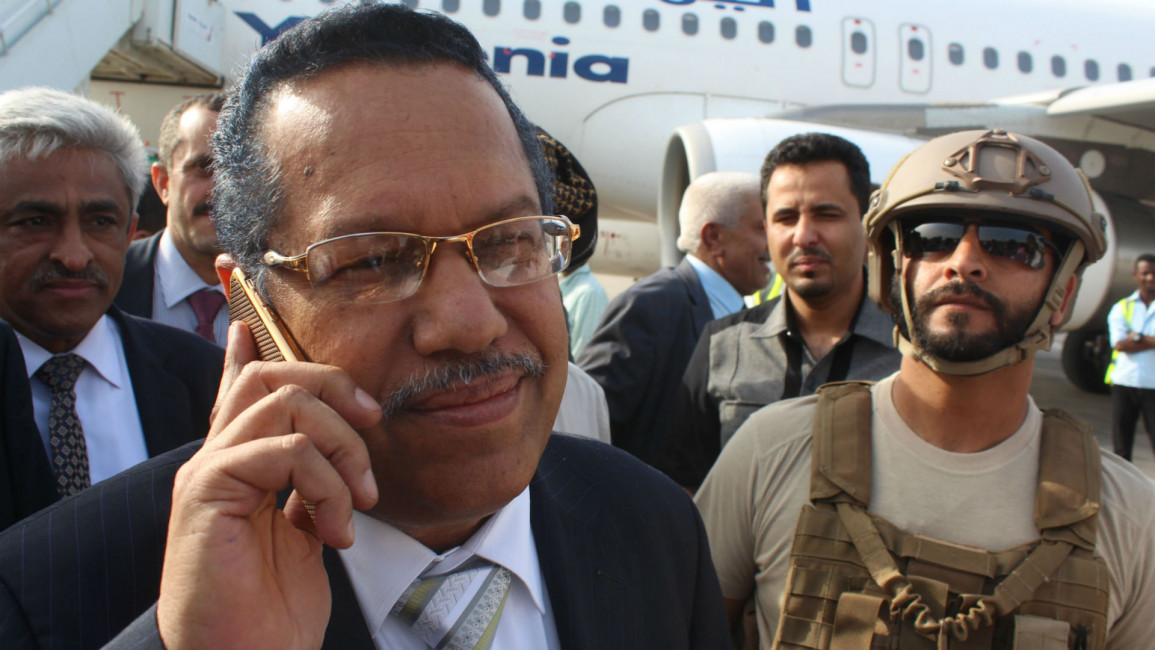Yemen prime minister returns to government's temporary domestic capital
Yemen's exiled government returned to the temporary capital city of Aden on Thursday, months after it fled to neighbouring Riyadh.
Just days earlier, the central bank was relocated to the southern city amid increased stability in the port city which has been rocked by extremist attacks and kidnappings.
Prime Minister Ahmed bin Dagher said his return home is "final", just a day after Houthi rebels celebrated their two-year hold on the capital Sanaa.
Seven ministers joined the prime minister on his flight back to the southern port city - his first voyage since his predecessor Khaled Bahah fled Aden in October last year after surviving a bombing attack along with ministers.
Bin Dagher said his return follows a decision by Abed Rabbo Mansour Hadi to relocate the country's central bank from Sanaa to Aden.
But the president himself has not made any suggestions of returning to Yemen.
However, some of his 32 ministers are expected to leave Saudi Arabia's capital Riyadh for Marib, a region largely controlled by the Houthi rebels.
Hadi's government fled to Saudi Arabia after Yemeni rebels overran Sanaa and other major cities, including Aden, two years ago.
Saudi Arabia formed an Arab coalition just six months later to push back rebel forces and reinstate the internationally-recognised government.
Coalition forces - with the support of local resistance groups - managed to regain control of Aden, however, large parts of the country remain under Houthi control.
UN figures suggest more than 10,000 people have died since the Saudi-led coalition began its military bombardment in March 2015, a much higher figure than the 6,000 previously reported.
Attempts to resolve the conflict failed in August when UN-sponsored peace talks in Kuwait ended with no results after two months of dialogue.



